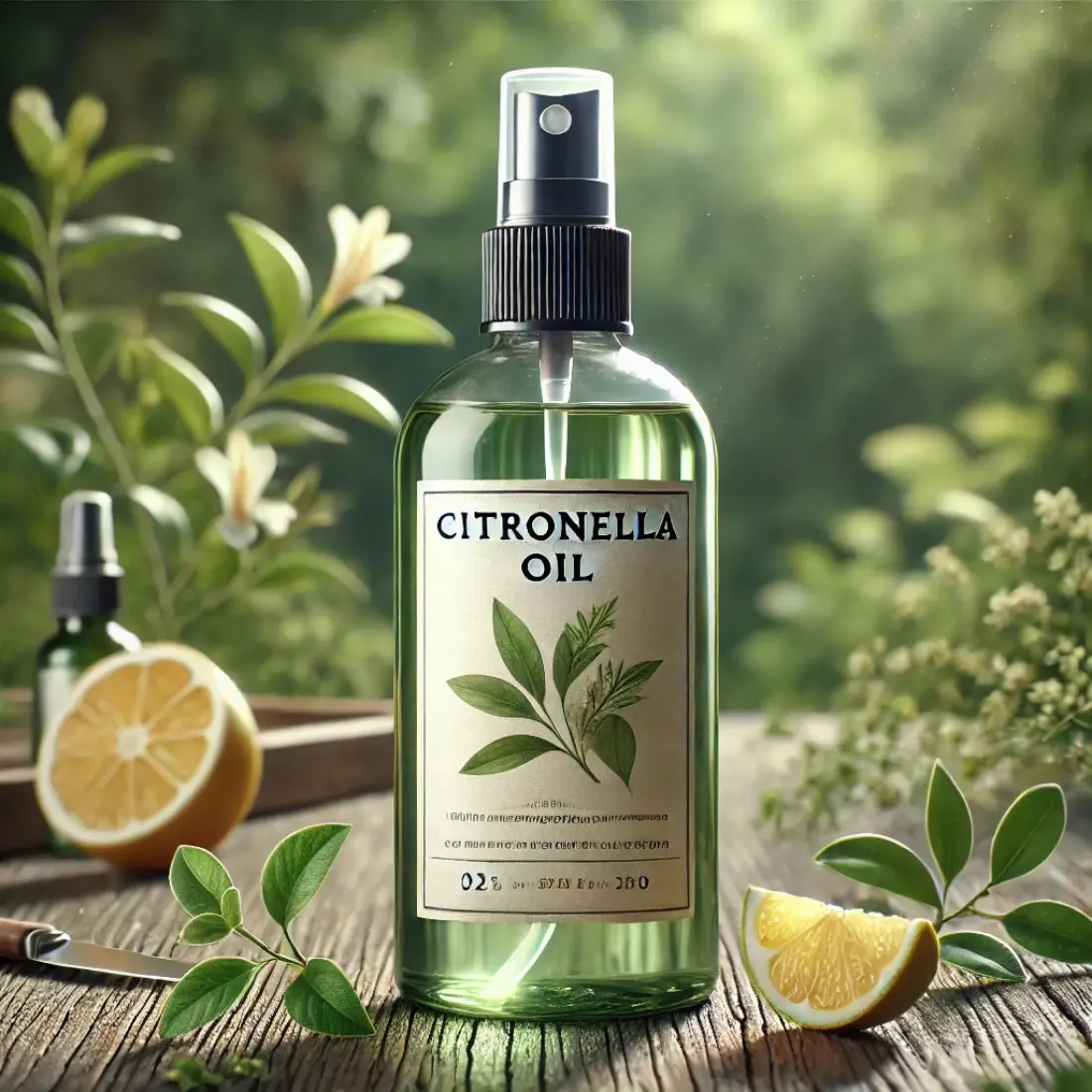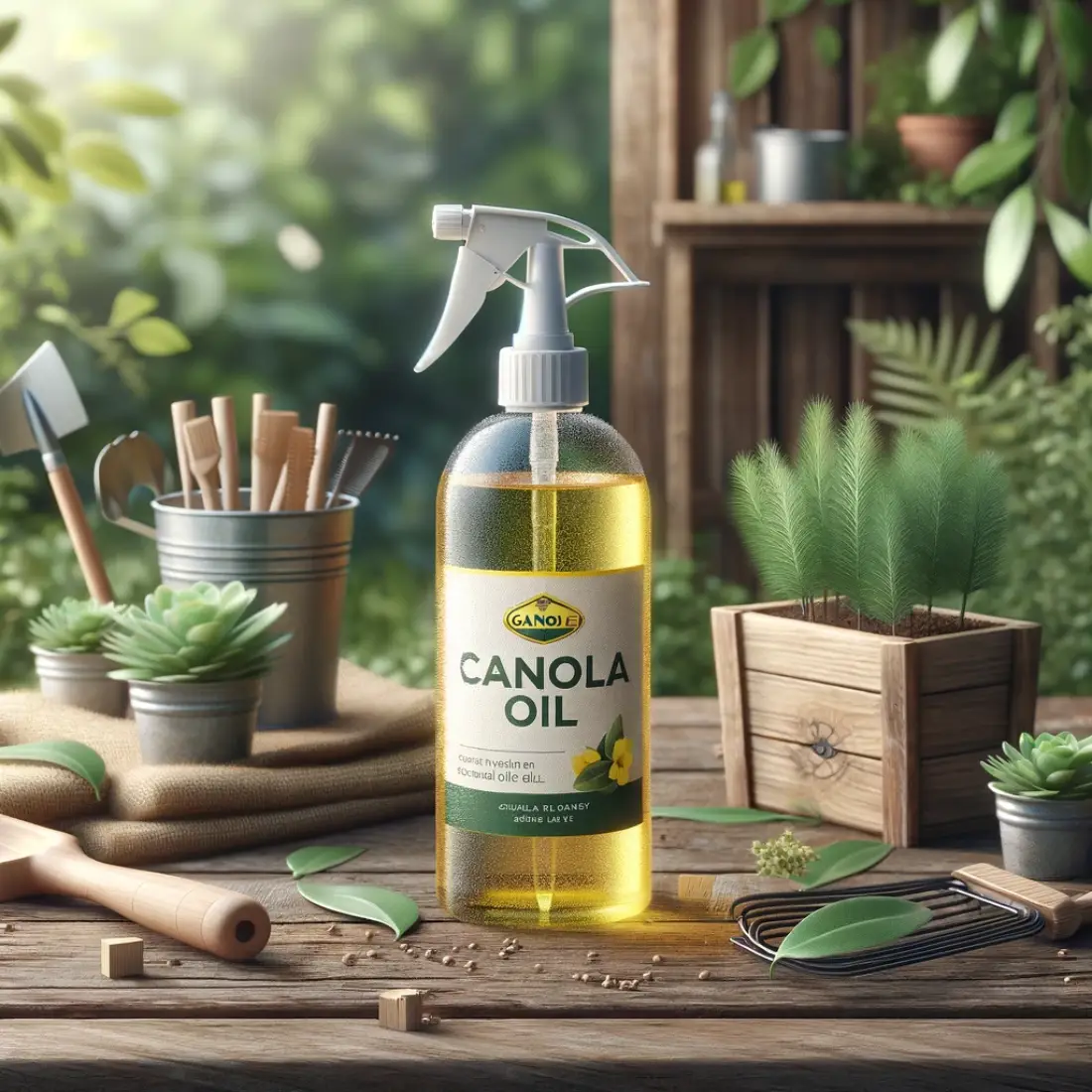Citronella oil, derived from the leaves and stems of the Cymbopogon plant (Lemongrass), is a popular essential oil known for its distinctive lemony scent. It has been used for centuries, particularly in Southeast Asia, for its medicinal properties and as a natural insect repellent.
In organic gardening, citronella oil is favored for its ability to deter pests without harming the environment, making it an excellent choice for those seeking chemical-free solutions. Whether you’re dealing with mosquitoes, aphids, or fungal issues, citronella oil offers a versatile and eco-friendly option that promotes garden health.
- Natural Insect Repellent: Citronella oil is highly effective at repelling mosquitoes and other garden pests, making it a valuable tool in organic gardening.
- Eco-Friendly Solution: Unlike chemical pesticides, citronella oil is safe for the environment, humans, pets, and beneficial insects like bees and butterflies.
- Fungal and Bacterial Control: Citronella oil has antifungal properties that help prevent common plant diseases, promoting healthier plants.
- Versatile Usage: It can be used in sprays, soil treatments, providing multiple ways to protect and enhance your garden.
- Easy to Use: Citronella oil can be easily incorporated into your gardening routine through simple DIY methods, making it accessible for gardeners of all levels.
How to Use Citronella Oil in Organic Gardening
Citronella oil is a versatile and powerful tool in organic gardening, offering numerous ways to protect your plants naturally. Here’s how you can effectively incorporate citronella oil into your gardening routine.
1. Citronella Oil Sprays
One of the most common and effective ways to use citronella oil in organic gardening is as a spray. This method targets pests directly and can be easily applied to your plants.
Ingredients:
- 10-15 drops of citronella oil
- 1 cup of water
- 1 teaspoon of mild liquid soap (optional, to help the oil mix with water)
- Spray bottle
Instructions:
- Mix the water and soap in the spray bottle.
- Add the citronella oil and shake well to combine.
- Spray directly onto the leaves and stems of plants, focusing on areas where pests are most active.
Application Tips:
- Apply the spray in the early morning or late afternoon to avoid scorching the plants in direct sunlight.
- Reapply after rain or heavy watering, as the oil can be washed off.
- For best results, use the spray once or twice a week during peak pest seasons.
Benefits:
- This spray acts as a direct deterrent to insects like mosquitoes, aphids, and whiteflies.
- It’s safe for most plants, though it’s always a good idea to test a small area first.
2. Soil Treatment with Citronella Oil
Citronella oil can also be used as a soil treatment to prevent pest infestations from the ground up. This method is particularly useful for targeting soil-borne pests and diseases.
Ingredients:
- 10-20 drops of citronella oil
- 1 gallon of water
- Watering can or garden sprayer
Instructions:
- Mix the citronella oil with water in the watering can or sprayer.
- Water the soil around the base of your plants, ensuring even coverage.
Application Tips:
- Apply the treatment once a month to maintain a pest-free soil environment.
- Combine with other organic soil treatments, like compost or neem oil, for enhanced benefits.
Benefits:
- Citronella oil helps deter soil-dwelling pests such as grubs, nematodes, and fungi.
- It enriches the soil with its natural compounds, promoting healthier root growth.
3. Pest-Specific Strategies
Citronella oil can be tailored to target specific pests that are common in your garden. By understanding which pests are most prevalent, you can use citronella oil more effectively.
Targeting Mosquitoes:
- Spray Solution: Mix citronella oil with water and apply it to areas where mosquitoes breed, like stagnant water and shaded areas.
- Plant Protection: Spray around plants where mosquitoes are commonly found, such as near ponds or water features.
Dealing with Aphids:
- Direct Application: Spray a concentrated citronella oil solution directly onto aphid clusters. Repeat every few days until the aphids are gone.
- Preventative Measures: Use a diluted solution as a preventive spray on plants prone to aphid attacks.
Fungal and Bacterial Control:
- Fungal Treatment: Apply a citronella oil spray to plants showing signs of fungal infection, such as powdery mildew. The oil’s antifungal properties can help slow the spread of the disease.
- Bacterial Protection: While citronella oil is more commonly used against pests, its antibacterial properties can also help reduce bacterial spots on leaves.
Benefits:
- Targeted application helps reduce the need for broader chemical treatments.
- Allows you to focus on specific problem areas in your garden.
4. Citronella Oil in Mulch and Compost
Incorporating citronella oil into your mulch or compost can help provide ongoing protection against pests as it slowly releases its scent over time.
How to Use Citronella Oil in Mulch:
Preparation:
- Add 10-15 drops of citronella oil to your mulch mix before applying it around your plants.
- Alternatively, spray a diluted solution directly onto the mulch after it’s been laid down.
Application Tips:
- Focus on areas where pests are most likely to be found, such as near the base of plants.
- Reapply every few weeks to maintain effectiveness.
Using Citronella Oil in Compost:
Composting Benefits:
- Adding citronella oil to your compost helps deter pests from digging through it, keeping your compost pile healthier.
How to Apply:
- Mix a few drops of citronella oil into your compost heap, especially if you notice pest activity.
- The oil will also help mask any odors that attract pests.
Benefits:
- Provides long-lasting pest control.
- Enhances the overall health of your garden by integrating citronella oil into the soil ecosystem.
Safety, Storage, and Precautions
While citronella oil is a natural and eco-friendly solution for organic gardening, it’s important to use it correctly to avoid potential issues.
Proper Usage Guidelines:
- Dilution: Always dilute citronella oil before applying it to plants. A concentration that’s too strong can damage plant leaves, causing burns or stunted growth. Stick to recommended dilution ratios—typically 10-20 drops per gallon of water.
- Test First: Before widespread use, test the diluted oil on a small part of the plant to ensure it doesn’t cause any adverse reactions.
- Avoid Overuse: Overapplication can build up oil on leaves, potentially hindering photosynthesis and plant respiration.
Storage Tips:
- Keep It Cool: Store citronella oil in a cool, dark place to maintain its potency. Exposure to heat and sunlight can degrade the oil, making it less effective.
- Sealed Containers: Ensure the oil is stored in a tightly sealed, dark glass bottle to prevent evaporation and preserve its properties.
Environmental Considerations:
- Non-Target Species: Be mindful of beneficial insects. Citronella oil should be used sparingly and strategically to avoid impacting pollinators.
- Disposal: Dispose of any leftover oil responsibly, following local guidelines for essential oil disposal to protect the environment.
FAQs about Citronella Oil
Can citronella oil harm plants?
Citronella oil is generally safe for plants when used correctly. However, it should always be diluted before application. Applying undiluted oil or using too strong a concentration can cause leaf burn or stunt plant growth.
How long does citronella oil last in the garden?
Citronella oil’s effectiveness typically lasts for a few days, depending on weather conditions. Rain or heavy watering can wash away the oil, so reapplication may be necessary every 3-5 days during peak pest seasons.
Is citronella oil safe for pets and children?
Yes, citronella oil is safe for pets and children when used in diluted forms. However, it’s advisable to keep them away from freshly sprayed areas until the oil has dried to avoid skin irritation.
Can citronella oil be used on edible plants?
Yes, citronella oil can be safely used on edible plants. Ensure proper dilution and rinse the plants thoroughly before harvesting to remove any residual oil.
Does citronella oil kill pests or just repel them?
Citronella oil primarily acts as a repellent, not a pesticide. It masks the scent of plants, making them less attractive to pests, but it does not kill insects directly.
How should citronella oil be stored?
Store citronella oil in a cool, dark place, preferably in a tightly sealed, dark glass bottle. This prevents degradation from light and heat, preserving its potency.
Can I mix citronella oil with other essential oils for gardening?
Yes, citronella oil can be mixed with other essential oils like neem, lavender, or peppermint to create a broader spectrum of pest repellence. Always test the mixture on a small area first.
What pests does citronella oil repel?
Citronella oil is effective against a variety of pests, including mosquitoes, aphids, whiteflies, and some types of beetles. It can also help deter certain soil-borne pests when used as a soil treatment.
Can citronella oil be used indoors for plants?
Yes, citronella oil can be used indoors on houseplants to repel pests like fungus gnats and spider mites. Ensure the area is well-ventilated and use a diluted spray to avoid overexposure.
How can I avoid harming beneficial insects when using citronella oil?
To protect beneficial insects like bees and butterflies, apply citronella oil early in the morning or late in the evening when these insects are less active. Target specific plants or areas rather than spraying the entire garden.













